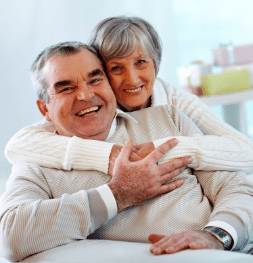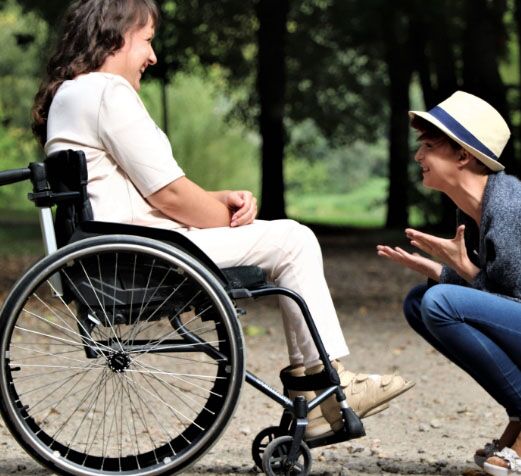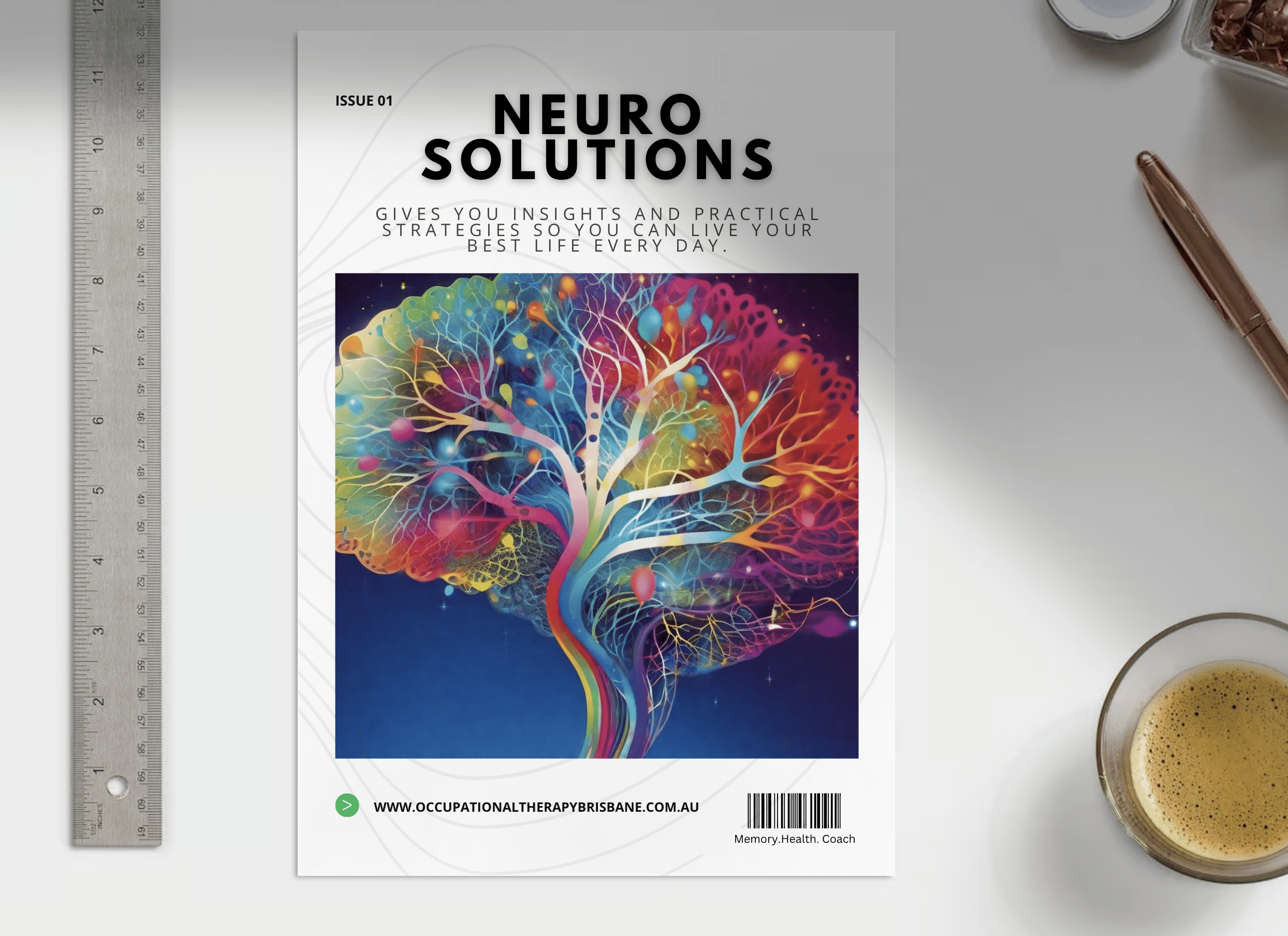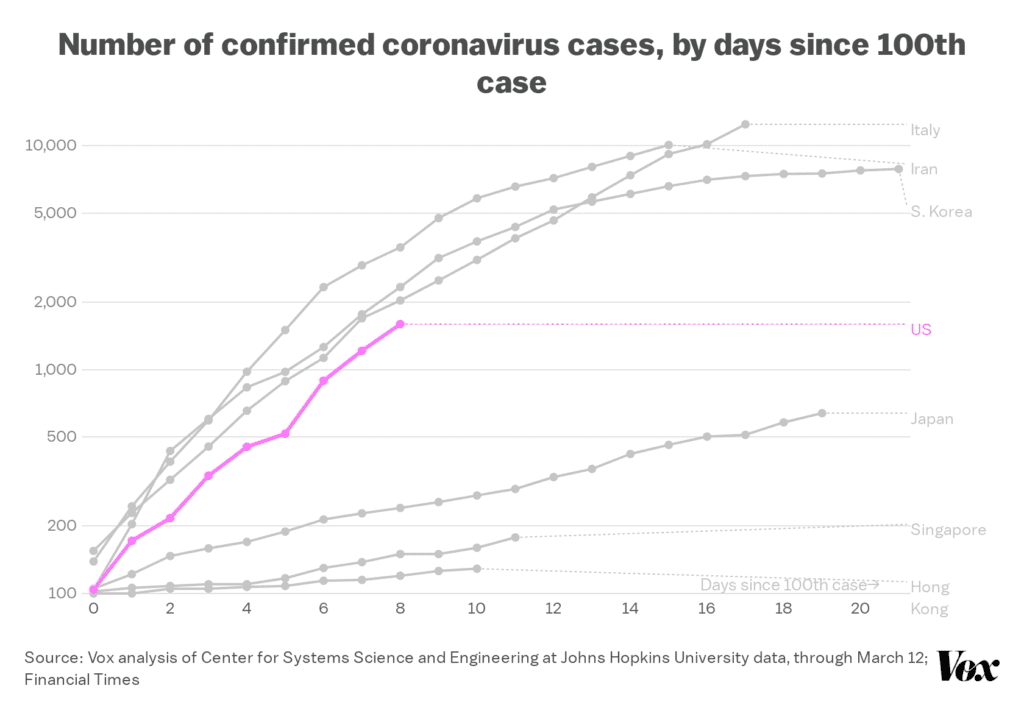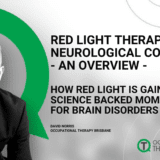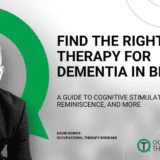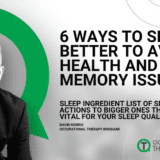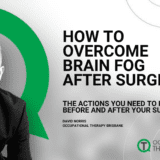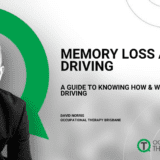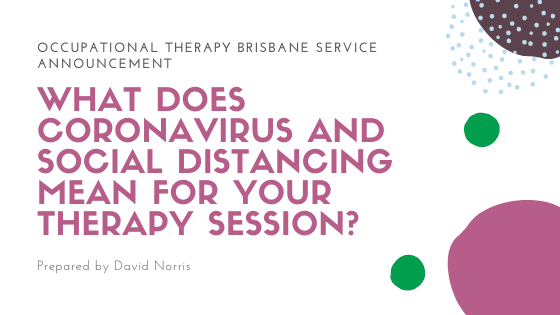
Coronavirus / COVID-19 And Your Occupational Therapy
Sporting events like the beloved AFL and other treasured national sporting entertainment during the autumn and winter months are on thin ice. Will they run or not? Well, spectators are suspended from attending until further notice.
The reason, to control the spread of novel coronavirus causing respiratory disease (COVID-19) through the use of social distancing.
Just like that coronavirus came to town and has made its presence known.
We’re now rolling with a moving problem.
One we hope to get on top of but if we don’t change how we connect and be social there will be life threatening consequences as we’re witnessing in Italy.
Special Therapy Announcement: As a high clinical contact, mobile service across Brisbane I’m very concerned about the spread of the virus and it’s life threatening consequences, COVID-19. This article aims to answer your questions and explain our current therapy policy whilst this COVID-19 continues to threaten our most vulnerable in the community.
David Norris
So, What Does Social Distancing Mean For Your Therapy?
In this article I’m going to cover off
- What is Social Distancing
- The difference between COVID-19 vs Coronavirus vs SARS CoV-2
- Why is Social Distancing Important – How It Helps
- Using Social Distancing To “Flattening The Curve”: The Impact To The Pandemic
- How Are We Reducing Your Risk for COVID-19 At Occupational Therapy Brisbane
- A Self Assessment: Should You Be Seen At Home or The Clinic
- Occupational Therapy Tele Consultations To Support Social Distancing and Reduce Your Risk for COVID-19
- What Are Social Distancing Measures That Can Help You At Home And At Work
- Current COVID19/ Coronavirus Resources
What is Social Distancing
I asked “Have you heard of the term Social Distancing”
“No” she replied.
It’s the strategy to stop the spread of a virus or contagion by keeping yourself at 1.5m distance from others.
So, what does social distancing really look like for people that are coming into contact with us at our clinic?
Well if we’re talking about our regular client in mind somebody who’s over 60 years of age may or may not have a neurological condition it is a rather difficult one to provide detailed instructions into actionable advice especially in the context of home and community life.
But what…
If I live with my partner and they are sick should I come to the clinic? If I live alone can I come to the clinic? What do I do if I feel down and sad do I go to my friend’s place? If I should go and get take out tonight or should I actually jump into a taxi and come into the clinic do a driving test?
COVID-19 vs Coronavirus vs Sars CoV-2
A novel (new) strain of coronavirus (novel coronavirus) which originated in Hubei Province, China in 2019 can cause a respiratory disease called COVID-19. According to the World Health Organisation “Official names have been announced for the virus responsible for COVID-19 (previously known as “2019 novel coronavirus”) and the disease it causes.”
The official names are:
Virus
- severe acute respiratory syndrome coronavirus 2
- (SARS-CoV-2)
Disease
- coronavirus disease
- (COVID-19)
Why Is Social Distancing Important – How It Helps
To limit the spread of coronavirus or COVID-19, epidemiologists have learnt from former outbreaks, clinical observations and research that distancing oneself from other people remains one of the most effective ways of preventing the community spread of the disease.
Combined this with hand washing using soap and water will also help prevent the spread of the virus.
Social distancing is important because COVID-19 is most likely to spread from person-to-person through:
- direct close contact with a person while they are infectious or in the 24 hours before their symptoms appeared
- close contact with a person with a confirmed infection who coughs or sneezes, or
- touching objects or surfaces (such as door handles or tables) contaminated from a cough or sneeze from a person with a confirmed infection, and then touching your mouth or face.
Source: http://www.health.gov.au/covid19-resources
According to the CDC guidelines acknowledges that Social Distancing is dependent on a size of the community, our population density, access to healthcare and caveats around social distancing can either be dialled up or dialled down depending on the situation that’s happening locally and that’s where a lot of conflicting information comes about.
If we compare China, Singapore, Hong Kong, Australia, England, Italy, USA for example as a financial times has done it shows that Australia is following a very similar virus infection trajectory as observed in Europe in countries like Italy. A very rapid one.
The point to this is that our health services will be placed under extreme demands. So much so we may see the same heartbreak as we’re seeing in Italy and Europe.
Social distancing needs to be dialled up, now.
Using Social Distancing To “Flattening The Curve” The Impact To The Pandemic
Countries like Singapore and Hong Kong, as opposed to Australia, appear to be flattening the viral infection curve. In a sense flattening or slowing the viral infection rate so that the health services can support those who become acutely unwell.
Known as “Flattening the Curve”.
How are they doing this?
In simple terms, it appears they have applied a very strict and community supported approach to maintaining distance from others by 1.5m, self quarantined when unwell and likely completed rigorous hand and environmental hygiene.
Here’s an excellent demonstration of how viruses like coronavirus spread exponentially and what to do about it. This is freely available courtesy of the Washington Post. https://www.washingtonpost.com/graphics/2020/world/corona-simulator/
And that’s why we are acting as we at Occupational Therapy are rolling this policy out for all our services .
COVID-19 (Coronavirus) – Therapy Self Assessment Tool
- Have you been in close contact with a confirmed COVID-19 (Coronavirus)- If yes self quarantine for 14 days from the last day of contact with the confirmed case
- Have you been in, or transited through, mainland China or Iran in the past 14 days, returned from South Korea on/after 5 March, or returned from Italy on/after 11 March? – Don’t come to therapy, self quarantine for 14 days
- Are you experiencing fever or respiratory symptoms AND have returned home from overseas? – If yes, Self-quarantine
- You’ve not been practicing social distancing within the last 4 days? If you haven’t, we request that you do prior to attending or having an OT attend you at your home.
- Have you been in casual contact with a confirmed case of COVID -19?Casual contact is defined as: spending less than 15 minutes face-to-face in any setting with a person who is a confirmed case AND they had symptoms at the time OR sharing a closed space for less than two hours with a person who is a confirmed case AND they had symptoms at the time. If yes, please don’t come to therapy or have a therapist visit, complete social distancing for 4 days and monitor yourself for 14 days.
The most common symptoms of COVID-19 are fever, cough, shortness of breath, muscle pain and fatigue.Ring the Public Health Hotline 13Health, or a GP or emergency department, to arrange for testing and appropriate care.
QLD Health
Many of our clients live with complex chronic health conditions. It’s these folk that appear to be most threatened by the virus and its disease.
Occupational Therapy Tele-Consultations To Support Social Distancing and Help Reduce Your Risk for COVID-19
We can offer you tele-therapy consultations to support you in your own home. Like having a therapist in your living room but not..
- Initial Consultations: 1 – 1.5hr consultations
- Subsequent consultations 15- 30min
If you’ve a computer and reliable access to the internet we are able to offer
- Home Assistive Technology assessment and advice
- Dementia and thriving at home consultations
- Minor home mods consultations
- Memory Health Clinic Consultations
- Neurological Consultations
- Palliative care
What is tele-therapy?
Tele-therapy is the delivery of therapy services into your home via technology such as web based videoconferencing. We use a secure platform called ZOOM. The benefits are clear with regards to the current virus pandemic. Less direct contact with people, reduce the risk of transmission.
There’s also an upside: You get Therapy services delivered online at a location and time that suits you.
Here’s what you need for tele-therapy
A computer or tablet with internet, camera and microphone is required for tele-therapy. ZOOM runs in your computer’s browser & you don’t need a software program to be downloaded.
What Are Practical Social Distancing Measures That You Can Apply Today?
COVID-19 spreads from person to person in a similar way to the flu:
COVID-19 Here’s What You Can Do At Home
- Wash your hands with soap – thoroughly, at least 20seconds according the WHO. This is what we mean by thoroughly “How to Wash and Dry Your Hands” from m the Australian Government’s Department of Health
- Cover your mouth when coughing, sneezing, disposing of tissues in the bin and using hand sanitiser in the absence of soap
- Clean surfaces and objects frequently with soap and follow up with alcohol based cleaner (approximately 60%). Frequently is daily especially triggered as an action if you’ve brought things into the home.
- Limit contact with others if unwell touching kissing hugging and other intimate contact
- Don’t touch your face
- Don’t encourage visitors and don’t shake hands. Instead greet them in other ways which don’t require physical contact
- Stagger your timing to go to the shops and other essential public place to avoid contact
What Your Therapist Will Do To Reduce Your Risk
- Be responsible for their personal hygiene at all times especially during the home based consultations
- Will wash the clinic environment before and after your therapy session
- Will provide with hand sanitiser / soap for your hand washing prior to the consultation in the clinic
- Will apply social distancing during the consultation where possible
A Final Word on Social Distancing
Rashid and associates argue, social distancing can dramatically slow the rate at which the infection is spreading, easing the burden on the health care system and in the end this will save lives.
Choosing to stay home as much as possible, inconvenient and boring as it may seem will ultimately help your fellow human.
David Norris
COVID19 Resources
- Coronacast- ABC Podcast
- COVID-19 Myth Busters – QLD Health
- Social Distancing: Evidence Summary
- Australian Government Health Alerts
- Coronavirus / COVID-19 Resources Australian Government Health Advice, for health age care, and general public.
Interested To Access Occupational Therapy Tele-Consultations ?
Call us today on 1300 783 200 and the team will have an Occupational Therapist contact you to find out more.

